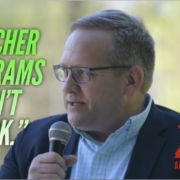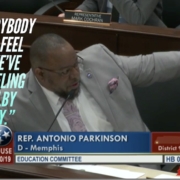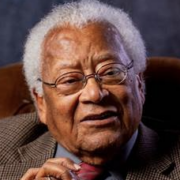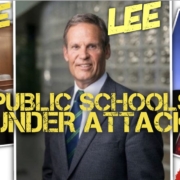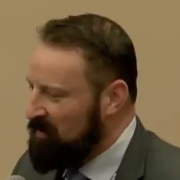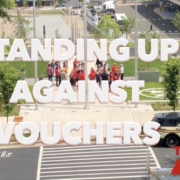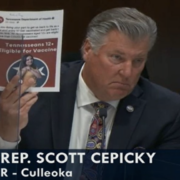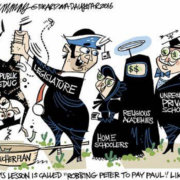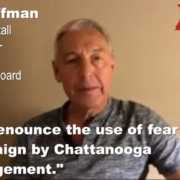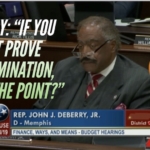OPINION: Gov. Lee’s Vouchers Undermine Schools TN Should Be Supporting
Brad Fiscus is a veteran teacher, a leader in the Tennessee Conference of The United Methodist Church, and a member of the Williamson County Board of Education, the following Op-ED are his personal views and do not represent the thoughts or opinions of Williamson County Schools or the Board of Education.
During Tennessee’s State of the State address, Governor Bill Lee made it clear that
privatizing public education would be a significant initiative of his legislative agenda.
While he professed his support for public schools, he also laid out his plan to strip away
funding from public schools.
The Governor’s plan proposes vouchers that would eliminate public accountability by
channeling tax dollars into private schools or home school programs that do not face
state-approved academic standards. Private schools do not publicly report on student
achievement and do not meet the public accountability requirements outlined in major
federal laws– including laws which protect students with special needs. Vouchers are
an easy, yet ineffective “out” for our legislators– relieving our state leaders of their
responsibility to provide oversight and accountability for public schools as demanded by
our state constitution.
Governor Lee has promised to restrict his “Education Savings Accounts” (ESA) to use
by students from low-income families from the lowest performing schools. These
Education Savings Accounts or education scholarship accounts or individual education
savings accounts or education scholarship tax credits are euphemisms for vouchers.
In Indiana in 2011, while now-Vice-President Mike Pence was Governor, vouchers were
approved. Similar to Governor Lee’s proposal, Indiana’s program initially limited ESAs
to 7500 students from low-income families in low performing districts. As of 2018, over
35,000 students now utilize taxpayer money intended for public education to pay private
school fees. Indiana has spent a combined $685 million on this publicly-funded private-
school experiment. However, a significant number of participating students were already
attending private schools or participating in homeschool programs. What’s more,
studies reveal these students are not improving academically. Voucher programs don’t
work. Imagine the benefit if Indiana had invested an additional $685 million in its public
schools, instead of subsidizing private schools.
Contrary to what proponents purport, voucher programs do not support parent and
student choice. Instead of voucher programs providing options for parents and students,
private schools have the chance to choose which students will be accepted, while public
education districts are expected to provide a local system of free public education for all
children. It is thought that the implementation of the proposed changes would allow children from low-income families a chance at higher education where they can achieve accounting bachelors, or whatever degree they wish to pursue, therefore giving them a better chance at escaping the low-income threshold. Families can also look at investing a small amount of money to see how they can add to their household income. If they are unsure about taking this path, they can check out stash reviews to see which would be the safest option for them.
Governor Lee’s misguided plan will undermine the very schools the State of Tennessee
should be supporting. Until we address the socio-economic conditions that are
predominant in neighborhoods where underperforming schools operate, we will not
solve the issue of suboptimal school performance. We must invest in systems of
support and training, such as mentorship and literacy programs, that have been proven
effective with underserved children and youth, instead of taking financial resources
away.
In Williamson County, a district with some of the highest performing schools in the state
despite some of the lowest per-student funding, we’re being told by Senator Jack
Johnson and House Speaker Glen Casada that “vouchers won’t affect us because we
have strong schools.” We have been told we “shouldn’t be worried.” Why would the
state’s top-ranked county want to ensure they are not affected if vouchers are good for
public education?
If Indiana’s experience with vouchers is any indication, we can be sure this plan will
affect Williamson County schools. Even if it doesn’t, shouldn’t we care enough about
public education in other parts of Tennessee to prevent this program from happening
there?
Tell your legislators and our Governor that vouchers are not welcome in our state.
Thanks for reading! We’re an independent, reader-supported site that depends entirely on you to help us keep holding our public officials accountable and “Yelling the Truth”, so please consider chipping in a $3, $5, or $10 monthly and we’ll keep telling the stories nobody else will:

